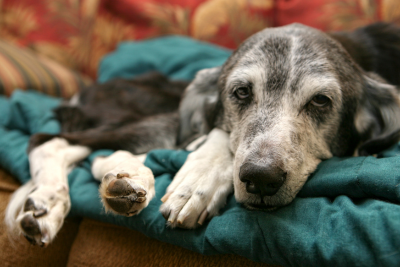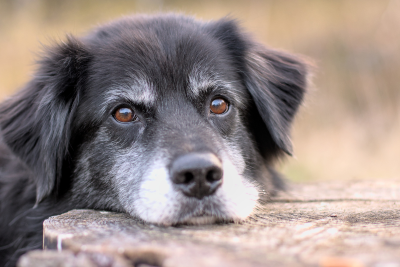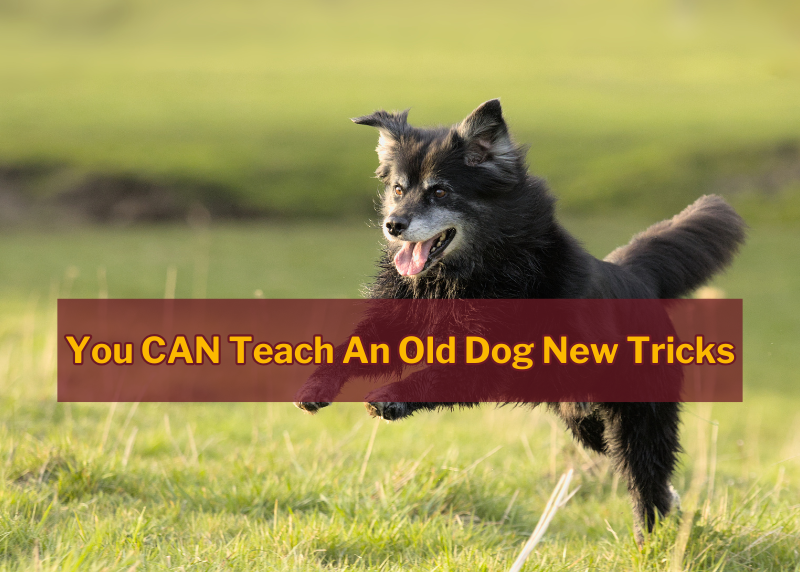Written By Briseis Schreibman, Edited By Abbi Colborn
We’ve all heard the famous saying, “You can’t teach an old dog new tricks,” But is this really true? This phrase has been around since at least 1534.
The earliest citation of the phrase was included in “The Book of Husbandry,” by Anthony Fitzherbert, where readers are encouraged to train their dog young, as it will be harder, if not impossible, to do so as they age. Luckily, this bad rep is easily disproved.
You Might Also Be Interested In:
- Switch Up Your Binge Watching: Animal TV
- Tips and Tricks: How To Socialize Your Dog Or Cat
- National Dog Day: A Celebration of Canine Loyalty and Love
Doggie Developmental Stages

Just like babies go through different periods of learning as they mature, so do dogs. During the first months to a year of life, the puppy goes through an accelerated learning course. Naturally, this is an excellent period for age-appropriate training and socialization because they are already in “learning mode.” Their brains are absorbing vast amounts of information, and their personalities are still developing based on their experiences at this time.
As dogs grow older, they become set in their ways, and their personalities begin to solidify. This “stubbornness” may initially deter owners, but I encourage you to push through that discomfort. Training provides structure and mental stimulation that will help keep your dog sharp late into their life. And of course, keep your goals realistic. Setting expectations for both yourself and your dog will make training fun for everyone!

Tips And Tricks

There’s a lot of variables to consider when training your dog. Breed, age, history, and temperament are all great places to start. A study by the NIH found that though senior dogs needed more repetition, they surpassed their younger counterparts in logic and reasoning tasks. Aging does affect response times, but it also brings knowledge. Wisdom, even.

If you’re based in Chicago, we recommend Green Paws Chicago for compassionate, professional dog walking. They’re a trusted local service that helps your dog stay active and social even while you’re away.
(When signing up, don’t forget to mention Chicago Urban Pets to support the blog and help us continue creating helpful content.)
Patience
Utilize the deepest breaths you can muster, and know that there will be frustrating times. When your pup forgets, or does the wrong thing, or just disengages, ignore it. That seems counterintuitive, but attention (positive or negative) reinforces the behavior it’s applied to. Ask anyone whose cat knocked things off their desk.
Untraining
Another hurdle not faced when training young dogs is helping them unlearn a behavior. Because your aged pup has already gone through their learning stage of development, they already have habits. You’re not working with a blank slate, sometimes you need to untrain your dog of one behavior before you can teach them another.
Consistency
You CAN teach an old dog new tricks, it just takes twice as long, and 4 times as much patience. We know that aging has a linear degenerative effect. Put simply, old dogs tire faster, both mentally and physically. Utilizing patience, and integrating training into your daily routine is the best way to set your senior dog up with some new tricks.
In conclusion, older dogs are absolutely capable of learning new things. It’s a different technique than working with younger dogs, and every dog will require different parameters for success. With practice, you can become a pro at training senior dogs.

If you’re based in Chicago, we recommend Green Paws Chicago for compassionate, professional dog walking. They’re a trusted local service that helps your dog stay active and social even while you’re away.
(When signing up, don’t forget to mention Chicago Urban Pets to support the blog and help us continue creating helpful content.)


